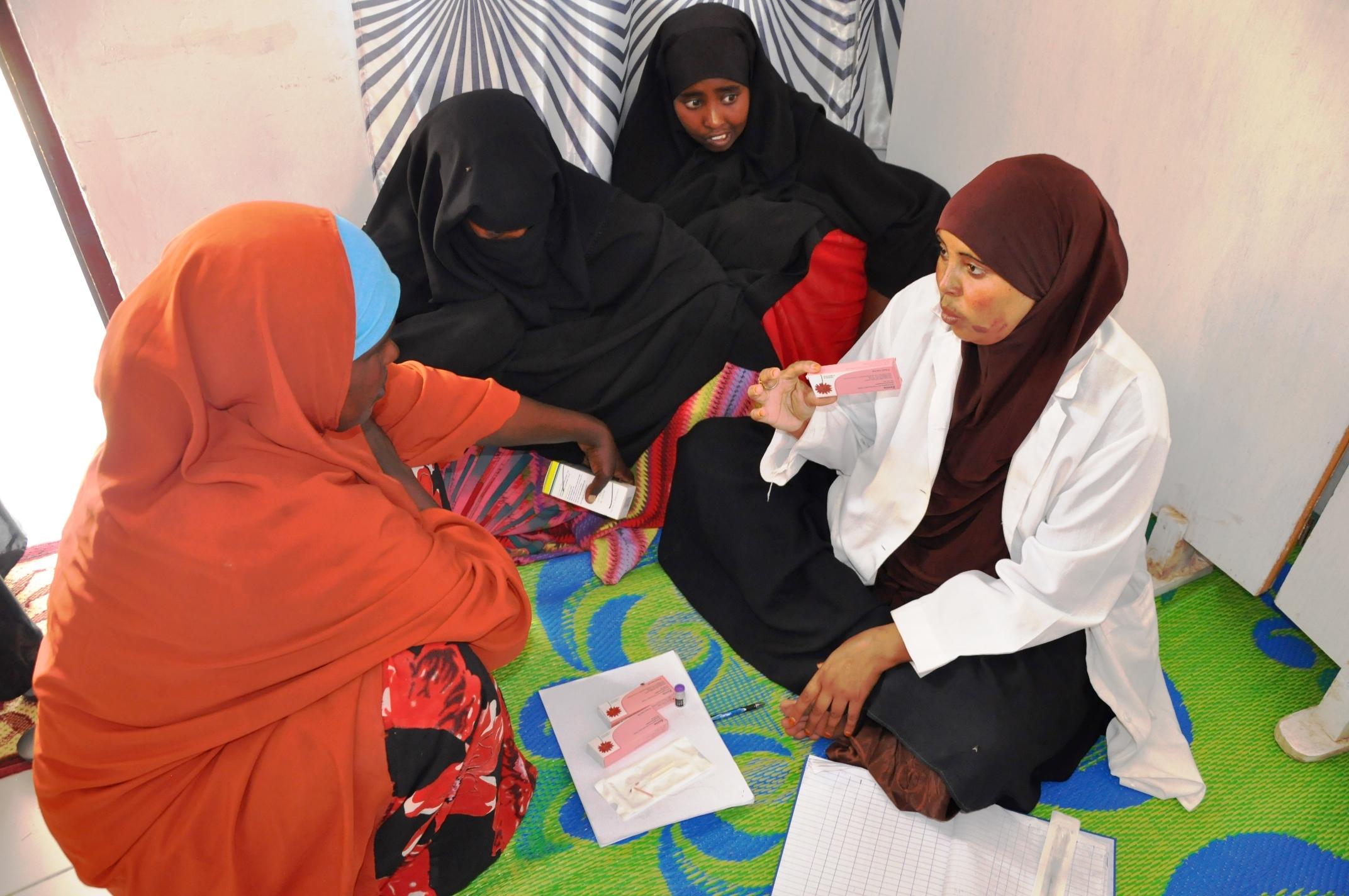Statement by UNFPA Executive Director Dr. Natalia Kanem on the International Day of the Midwife, 5 May 2020
As the world battles COVID-19, women continue to get pregnant and babies are still being born. Childbirth doesn't stop for pandemics, and neither do midwives. They are working tirelessly on the front line in maternity wards, health centres and women's homes around the world, risking their own lives and wellbeing to save the lives of women and newborns.
In many countries hit hard by the COVID-19 crisis, midwives are dying due to lack of personal protective equipment (PPE) and overall lack of support. Midwives in many health facilities are being redeployed to respond to the virus, and this leaves women without access to life-saving, time-critical services. Maternal and newborn health must be prioritized as part of the overall health sector response to the pandemic.
UNFPA applauds the work of all midwives, and we pledge to stand by them, working with national governments to protect midwives from COVID-19.
Midwives are the backbone of maternal health systems – delivering babies and much more. This crisis is an opportunity for all of us to do more to support midwives’ efforts to uphold the sexual and reproductive health and rights of all women, everywhere.
In countries where these rights and choices are questioned or under threat, midwives speak up about preventable maternal deaths and lack of access to family planning. They sound the alarm on gender-based violence and harmful practices like female genital mutilation and child marriage. They drive progress towards gender equality.
Midwives stand by women when they are most vulnerable. They fight daily to defend a woman’s human right to go through pregnancy and childbirth safely, even as they themselves often face discrimination, sexual harassment and unequal pay. These challenges are now being exacerbated by the fear and uncertainty over COVID-19.
Traditionally, midwives have played a vital role in responding to pandemics. With national health systems in many countries totally overwhelmed, midwives are demonstrating their courage and resilience by continuing to support childbearing women in the toughest of circumstances.
UNFPA is supporting midwives on the front lines of the COVID-19 response worldwide by providing supplies and personal protective equipment; building the capacity of health systems so maternity services don't get left behind; and ensuring that pregnant and breastfeeding women – including those under quarantine – get the care they need when they need it.
Now more than ever, we must take action to recognize midwives as steadfast champions for the sexual and reproductive health and rights of women and girls. Here are three ways YOU can do your part to make this happen in 2020, the International Year of the Nurse and Midwife:
-
Demonstrate your support by acknowledging and informing others of midwives’ crucial role in reducing maternal and neonatal morbidity and mortality. Without midwives, many more women and babies will die from preventable causes during childbirth amid the pandemic.
-
Celebrate the achievements of midwives and their contribution to improving sexual, reproductive, maternal and newborn health. Make them feel proud as frontline health workers responding to COVID-19.
-
Motivate policymakers to implement change by lobbying for midwives to be recognized as unique professionals and provided with adequate resources. Demand investments in midwifery and honour their contribution to maternal and newborn health.
Let’s unite for and with midwives to prioritize and protect women’s sexual and reproductive health and rights, even in these difficult times.


